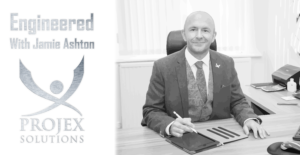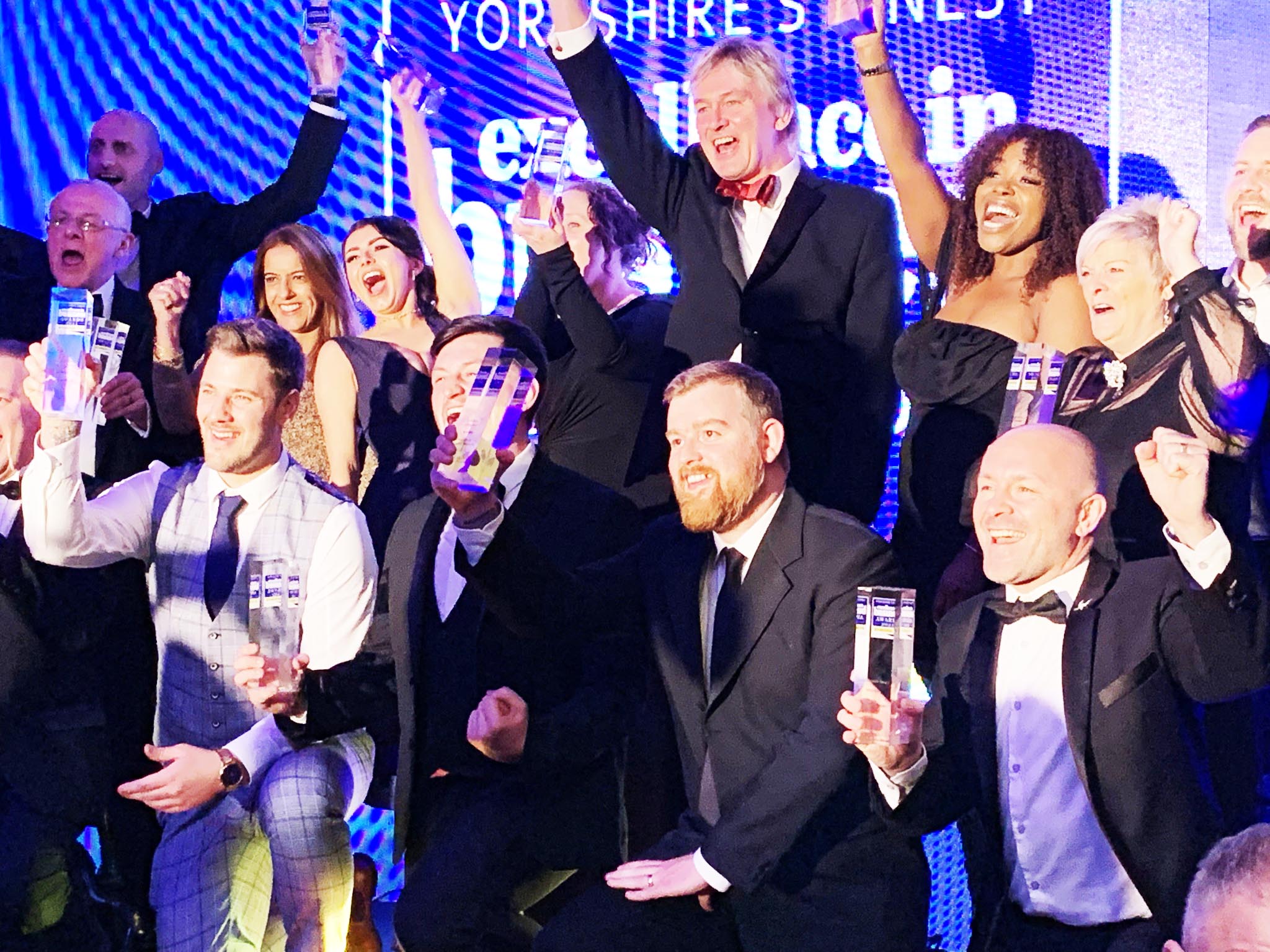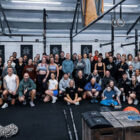Engineered: An Interview with founder Jamie Ashton

What made you form Projex Solutions and how did you go about it?
I love providing engineering solutions, I was an apprentice trained instrument technician at Allied Colloids which has since been Ciba Specialty Chemicals, BASF and now Solenis. Following my apprenticeship, I progressed through the Engineering Design Department before moving on to an Engineering Company as ECI Design & Project Engineer – with Qualifications of City & Guilds, B-Tec, ONC, HNC followed by a degree and then gaining Chartered Status as a Member of the Institute Engineering Technology (MIET) in April 2003.
In 2006 after realising working for others had its challenges, I had a personal desire to develop my skills & knowledge further and pass on my experience to my own team. So, I decided to set up Projex Solutions Limited specialising in Consultations, Design & Project Management to deliver multidisciplined projects in a proactive & efficient manner, working as an embedded part of the clients engineering team. Ultimately our aim is about building relationships and striving towards a successful future for both our Clients and Ourselves – becoming an embedded part of the client’s team.
Projex Solutions has now been running for 16 Years, what has been your secret to success?
Building relationships without a doubt is key to everything, if you can sit with anyone (clients, colleagues, friends) and understand their requirements (in business & home life) you are on the road to success. From a business technical & commercial perspective, for me the key is to invest in your team, provide a progression plan, making sure you are prepared for the changes in direction required to be adaptable in these constantly moving markets – ultimately making sure everyone understands the value they bring to the table….it is a team game.
Over the years what has been the biggest change within the engineering industry?
Our biggest challenge was to map out a sustainable business plan which engaged with the team and clients to support the business growth model. In doing so everyone has clear objectives and deliverables as part of these plans and ensured we all pulled in the same direction. Prior to this we had clear engineering activities which worked but took a whole heap of managing and created distractions from the bigger picture. The next big challenge was identifying routes to market and how to engage with new clients outside our then normal industries (Chemical, Pharmaceutical, Food etc) however as we have the transferable skill sets to target support across all markets this was made easier to propose methods of support with clients.
You yourself have had a long industrious career within engineering, do you have any advice for aspiring engineers out there?
There are so many roles within engineering, I chose my path as my dad had run his own business supplying & servicing control valves to industry – Saturdays were spent lapping valve plates in manually on parallel slide valves – only to find there was an automatic lapping machine next to where I was stood 😊. My advice, do your research – identify the industry you may want to make a difference in, identify the role you think is suitable for you, most importantly ensure there is a progression plan and go for it – it is hard graft starting out, the hands on training & late nights at college / university but ultimately the end result is you can and will make a difference – never give up, the effort will be worth it.







